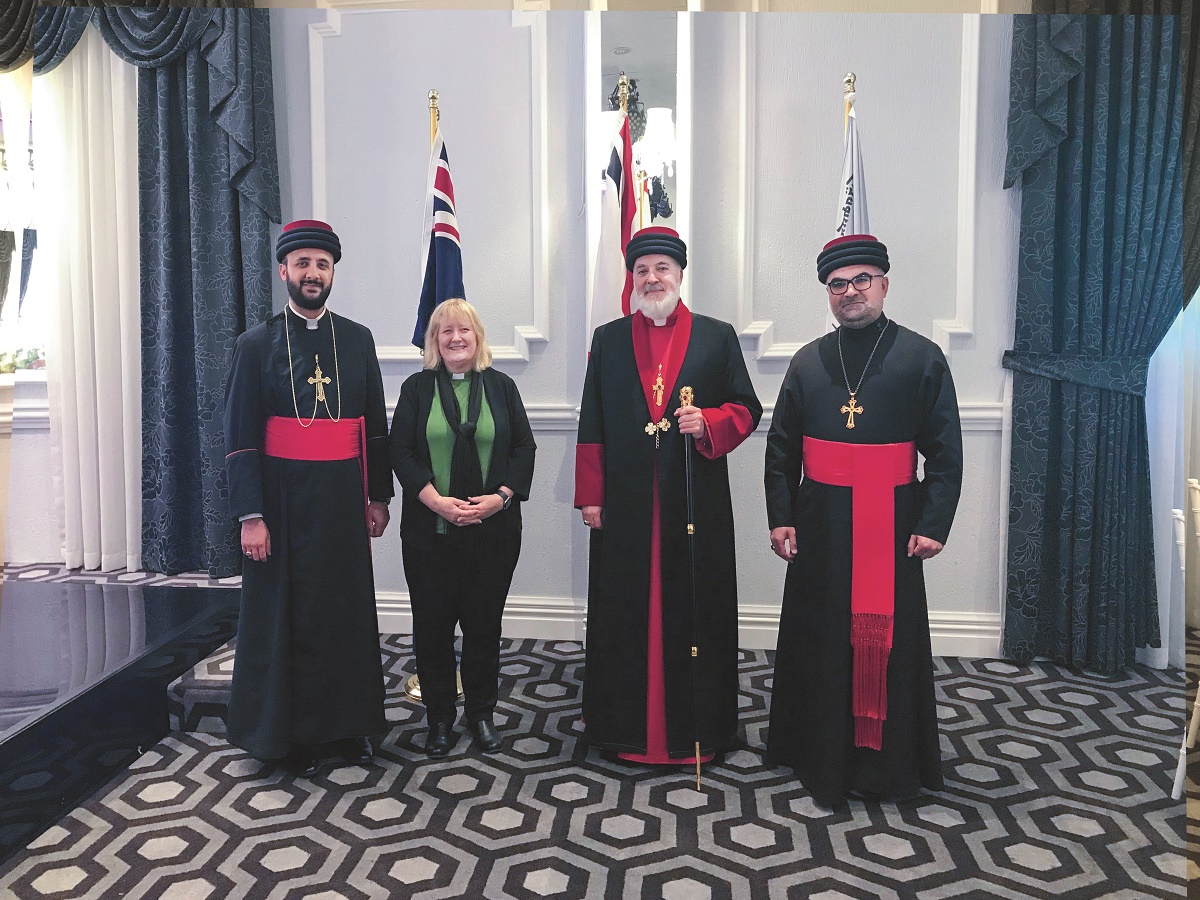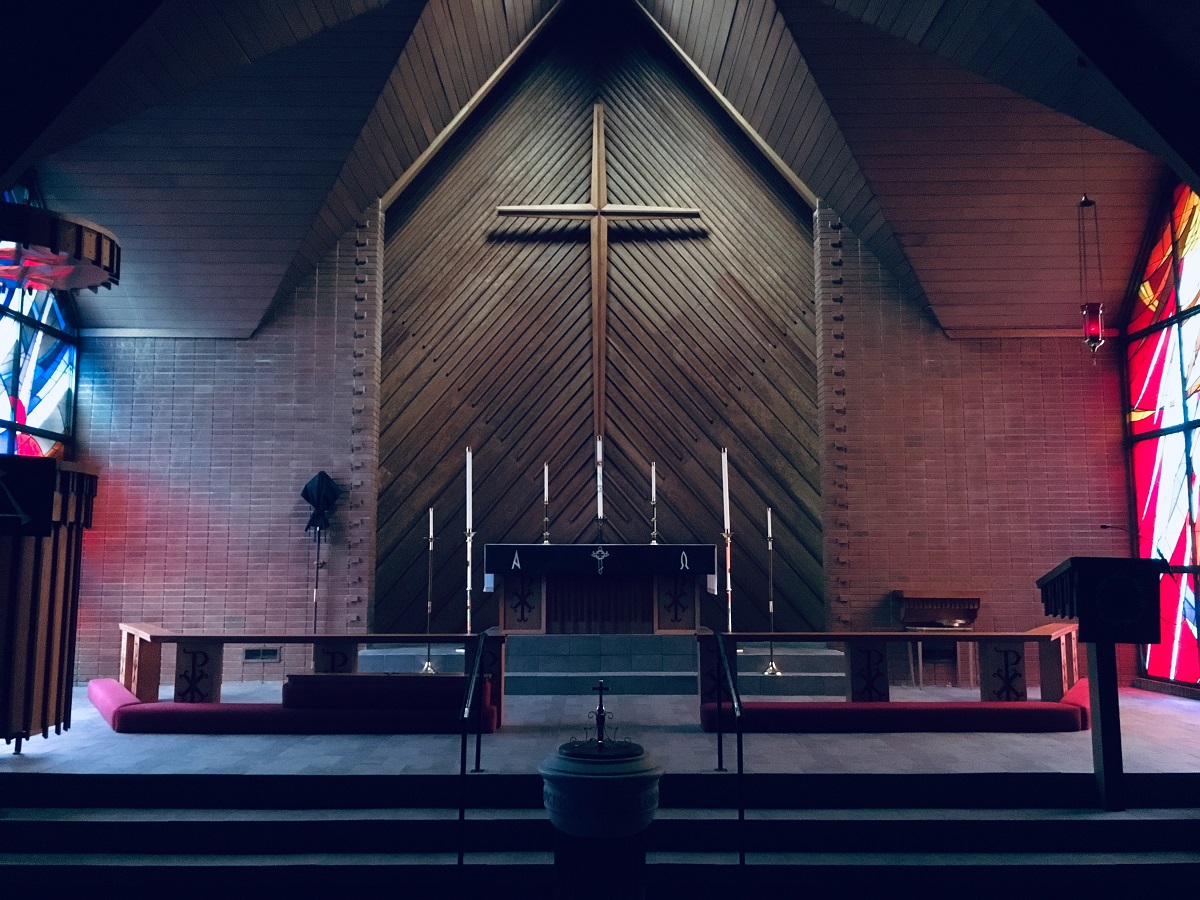By Andrew Humphries
In some circumstances, a tap on the shoulder can be the equivalent of the kiss of death. In others, it can be the kiss of life.
For new Victorian Council of Churches executive officer Sandy Boyce, taps on the shoulder have opened new worlds in her ongoing faith journey.
The first tap propelled her into youth work within the Uniting Church Synod of South Australia, which in turn set her on a path towards ordination as a Deacon in 2007.
The second tap came from a colleague in SA who had seen the VCC role advertised and believed Sandy possessed all of the qualities to be a success in the role.
As the peak body representing member churches, including the Uniting Church, the VCC provides a voice articulating a Christian response on issues within the community, including indigenous affairs, refugees, prisons, poverty and human rights.
It is also a strong voice to government in an advocacy role.
“When I’m promoting the VCC I’m wanting to promote the churches working together and to have a voice of integrity so the community can see the valuable work churches do, even if they aren’t part of the church themselves,” Sandy says.
After a 20-year teaching career, Sandy moved into congregational youth work for three years before taking on the role of youth ministry consultant in the SA Synod for six years.
She is co-convenor of the network of Deacons in the Uniting Church and the president of DIAKONIA World Federation, an international and ecumenical community of diaconal friendship.
Sandy is also a member of the Uniting Church Assembly Standing Committee, was Minister at Pilgrim Uniting Church in Adelaide for 12 years and has held a number of roles in organisations campaigning for better outcomes for refugees and the homeless.
Before her ordination, Sandy was the national faith development consultant in the Uniting Church, overseeing activities and programs for youth and young adults, before a six-year stint as the national People in Mission co-ordinator for Uniting International Mission (now known as Uniting World).
It’s fair to say Sandy has worn, and continues to wear, many hats.
The UIM role, which involved co-ordinating volunteers in placements with partner churches in Asia, Africa and the Pacific, had a transformative impact on Sandy.
As part of the work, Sandy had an opportunity to visit partner churches which received volunteers from the Uniting Church in Australia, including Zimbabwe, Zambia, South Africa, Thailand, Malaysia, India, Sri Lanka and Tonga.
“Being heavily engaged with people in mission was, for me, really the ‘wow’ moment and it was absolutely transforming to be able to deal with churches in Asia, Africa and the Pacific,” Sandy says.
“I learnt through them a different lens on theology and it came alive in a whole different way for me.
“It was through those experiences that I recognised a call to Ministry as a Deacon in the Uniting Church, particularly in the diaconal ministry, so the calling for me was actually beyond the Church and out there in the world.
“We have a rich history of people going as missionaries to some of the churches in Asia and the Pacific, and these people were part of the transformation of these churches. It was these sorts of experiences that enlivened a sense of calling for me, and that was towards the diaconate rather than the Ministry of the Word.”

Sandy Boyce with members of the Holy Apostolic Catholic Assyrian Church of the East, from left, His Grace Mar Benyamin Elya, His Holiness Mar Awa 111, and His Grace Mar Abris Youkhana.
It’s been quite a life journey for someone who happily admits she came to faith relatively late.
“I didn’t grow up in the Church at all, so a lot of those nostalgic and formative things that most people look back on (in terms of early faith) like Sunday School, church and youth groups weren’t part of my background,” Sandy says.
“Instead, I came to faith through the Christian fellowship group on the Flinders University campus in Adelaide.”
It was a time, Sandy says, of political and social unrest around issues such as the Vietnam War and apartheid in South Africa, and Christian university students were leading the charge towards social justice. These were deeply formative years in her faith journey.
“It was a fairly giddy time in terms of international politics, and Christians were actively involved in engaging in social issues,” Sandy recalls.
“My introduction to the Church was through the chaplain at the university, who was very engaged in those activities, so it was a fusing of the social engagement and the public arena, as well as personal faith and discipleship.
“This was also a very creative time in the Church, where there were lots of arts and songwriting happening in an Australian context, so my early pilgrimage as a Christian was sharing faith with some very creative companions, and that was very formative for my journey.”
As her faith grew, Sandy’s constant companion was social justice, a commitment that has only strengthened over the years.
“It took a lot longer for the theological and justice side of things to be able to have a conversation together, but they existed side by side and, as I grew in faith, I was able to see how the two were interwoven,” Sandy says.
“(I could see) how the disconnect between social justice and the community was unfortunate, because it diminishes what faith is about, from one of a purely personal experience to one of what Jesus demonstrated over and over again around compassion for the most vulnerable.
“But as those theological threads were interwoven with social justice, it really enriched my faith.”
As Minister at Pilgrim Uniting Church in Adelaide, that commitment to social justice was able to flourish.
“Pilgrim has a very strong commitment to social justice, and literally on its back doorstep there are homeless people sleeping, so my role there was to have one foot in the Church, in terms of leading worship, and one foot in the community and knowing its concerns around issues like refugees and homelessness,” she says.
“All of this fitted very clearly within my sense of calling.”

“At the heart of the ecumenical movement is this strong commitment to working together, a sense of partnering with other churches from other traditions,” says Sandy Boyce.
As VCC executive officer, Sandy aims to continue ensuring the organisation is heard, and says a 1952 ecumenical statement offers a guide to how churches can come together in that space.
In the Third Faith and Order Conference in Lund, Sweden, that year, the principle for ecumenical relationships was set out.
“Should not our churches ask themselves whether they are showing sufficient eagerness to enter into conversation with other churches, and whether they should not act together in all matters except those in which deep differences of conviction compel them to act separately?” the principle states.
Sandy says the Lund principle still resonates 70 years later.
“Instead of doing ecumenical things, Christians and churches should try to do things ecumenically, in particular, to do things together which are already a part of their normal life, that is to share a common life,” she says.
“At the heart of the ecumenical movement is this strong commitment to working together, a sense of partnering with other churches from other traditions.
“It’s about what we can learn from each other as we work together and about building relationships, trust and respect together as a witness to the Gospel.”
And while there is undoubtedly strength in numbers, Sandy points out that sometimes there may not be clear agreement among all VCC members on a particular issue.
“In terms of lobbying, it does become nuanced because there are some issues (we) can easily speak out on with a common voice, and need to have that voice heard in the public arena and can become known for that,” she explains.
“There are other issues that there may not be common agreement on, but when representing views to government it’s important to point out there may be a wide range of views and that government shouldn’t assume that all churches think the same on a particular issue, so representing that diversity is also important.
“Obviously churches can speak out on issues individually, but it’s stronger when we can speak out together on particular issues, like refugees or homelessness.
“It’s about building relationships with government rather than coming in with a particular viewpoint, and having mutual respect at the centre of the relationships, and to engage in those conversations respectfully so the integrity of the Christian churches is valued, as is the work of the government at its best.
“The VCC constitution clearly speaks about being advocates with and alongside First Nations people, and those who are most vulnerable, and that is what is at the heart of what the VCC has as its mandate.
“When I’m promoting the VCC I’m wanting to promote the churches working together and to have a voice of integrity so the community can see the valuable work churches do, even if they aren’t part of the church themselves.”

